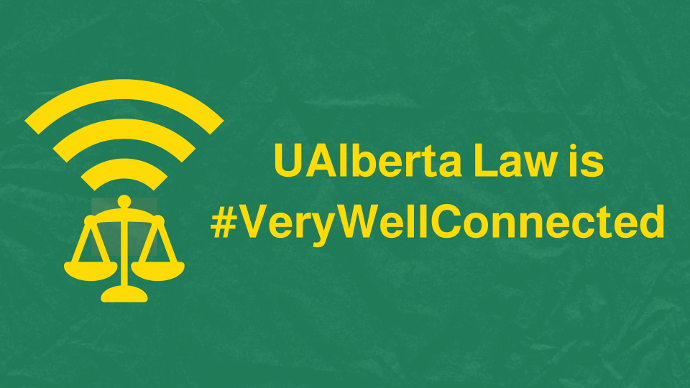#VeryWellConnected: Prof. Peter Sankoff promotes the advantages of remote education delivery
Sarah Kent - 25 May 2020

The University of Alberta’s transition to remote delivery poses real challenges for students and instructors, but it also presents unique opportunities to enhance student learning, says Faculty of Law Professor Peter Sankoff.
He wants to build on the positives of remote delivery while also finding creative solutions to the challenges.
“Free your mind and say, ‘what is actually possible when you’re using technology?’” said Sankoff.
Sankoff has widely published and presented on legal pedagogy and was the first professor in Canada to implement the flipped classroom method in law classes, so innovations in the classroom come naturally to him.
He has already taken advantage of the opportunities presented by working remotely by hiring and mentoring students from across the country as part of his 100 Interns Project.
For fall 2020, Sankoff is “ripping up the text” and “start(ing) from ground zero.”
ENDLESS POSSIBILITIES
He’s looking at inviting guest speakers to present virtually, which provides students the chance to hear from members of the legal community who would otherwise be unavailable due to travel costs or packed schedules.
“Once everyone is remote, the possibilities are endless.”
Sankoff is also toying with creative ways to maximize time with students by “expanding and contracting” the classroom, splitting up the class time and students in different ways, something that is only possible because there will be no physical barriers.
When his large lecture course moved to remote delivery in March, Sankoff noted he was having significantly more interactions with students online than in the physical classroom.
The anonymous chat function in Zoom gave students the chance to take more risks with their learning without feeling self-conscious.
“It changed the equation,” said Sankoff. “We had online Q&As before the exam that were much more vibrant and discursive than in the normal environment.”
While there are notable benefits to virtual delivery, there are also problems that need to be solved.
For Sankoff, the biggest challenge is finding ways to recreate in-person interactions that help law students grow and build confidence.
While he believes that “the best model will always be a combined model” of in-person and virtual delivery, Sankoff knows he can make the best of current circumstances imposed by the public health crisis.
“We are going to come up with the optimal scenario to try to maximize the benefits of the virtual world while minimizing the obstacles that are present,” said Sankoff.